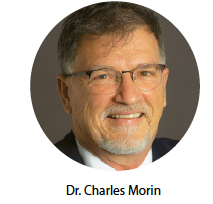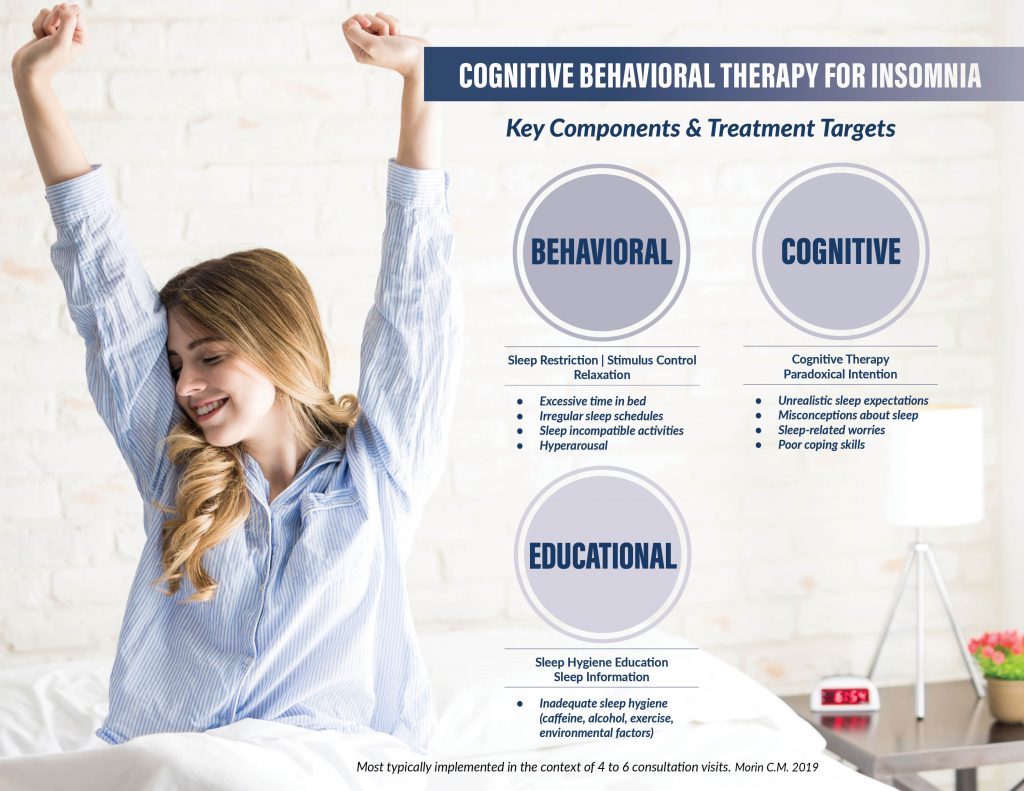What to understand about the gold standard in insomnia treatment.
If you are experiencing insomnia—or finding it difficult to fall asleep several times per week, you may be told by your healthcare provider about cognitive behavioral therapy for insomnia (CBT-I). Throughout my over 30 years in the field of sleep medicine and research, I have treated hundreds of patients in this way and supervise clinicians in treating many more.
What is CBT-I?
Cognitive behavioral therapy for insomnia is a brief form of psychotherapy. It is a pragmatic approach based on problem solving, sleep-focused, and it gives control to the patient. If coming to me for CBT-I, my job is to make sure you’re in control of implementing changes in your schedule and—though I am there to guide you—you are responsible as the patient. While I am there to guide you, I will not police you. I can check in and suggest ideas, but the work must be done by the individual.
As the name implies, CBT-I is recommended for changing behaviors and cognitions. Think about the statements you give yourself, the internal monologues, thinking patterns and beliefs. They are not always conscious and your beliefs about sleep and what will or will not happen when you get into bed and how you might feel the next day may need to be talked through. Cognitive behavioral therapy is used to change behavioral and thinking patterns about factors that perpetuate or exacerbate sleep disturbances. It has also been used with anxiety, eating disorders, depressive disorder and more. It guides you to a new pattern of behavior and has nothing to do with psychoanalysis. You must be willing to invest time and efforts in this form of therapy. An overnight “quick fix” it is not. But when CBT-I is implemented properly, it will let you achieve long-term sleep improvements. That’s not to say that overnight fixes such as sleeping pills cannot be used in conjunction with CBT-I, it’s just that the course of therapy will run 6, 8 or 10 weeks in length and this should be understood when beginning.
First-line Treatment

Many medical and sleep organizations now agree that CBT-I is the first line of treatment, as well as the gold standard. It has been tested worldwide. Around 70-80% of patients will benefit from CBT-I and up to 50% can experience a full remission of insomnia symptoms.
I think the first message patients should receive is one of hope. So many come in as a last resort and are hopeless after years of suffering or are discouraged and think they’ve tried everything. Then after we’ve been together for a few weeks, we evaluate things. And—if they do not give up after a week—we begin to see changes. Some of the components I often hear are habit-based. One cannot work on a cell phone in bed up until the last second and then expect to fall asleep instantly. This is something I even have to remind myself. With CBT-I, I remind patients that waking up in the middle of the night to plan out the details of the next day can be done later. We need to plan time for enough sleep, plan time to schedule and plan for the next day before we are in bed. Living in a constant state of sleep deprivation will not get you ahead.
Accessibility
With the pandemic came an influx of telehealth and teletherapy options. While this is undoubtably a good thing in areas where accessibility and affordability could be barriers to getting treatment, I see this not as a substitute for in-person treatment but as a supplement to it. If mild insomnia exists, perhaps teletherapy sessions may work. But I’m hesitant to recommend it for those with ongoing insomnia issues along with other psychological difficulties and chronic hypnotic usage. Most will continue needing face-to-face guidance. If using something like an app, this is fully automated and not necessarily the best option for all patients.
If you are experiencing insomnia, I urge you to talk to your doctor about CBT-I. After a few weeks, you will begin to remember how good it feels to be well-rested. You invest a few weeks for your physical health with a diet or exercise program, why not also invest in sleep?

Charles Morin, PhD has been working in the field of sleep medicine and research since 1986. Currently, he is a Professor in the Department of Psychology at Laval University in Canada. He is the past-president of World Sleep Society.



